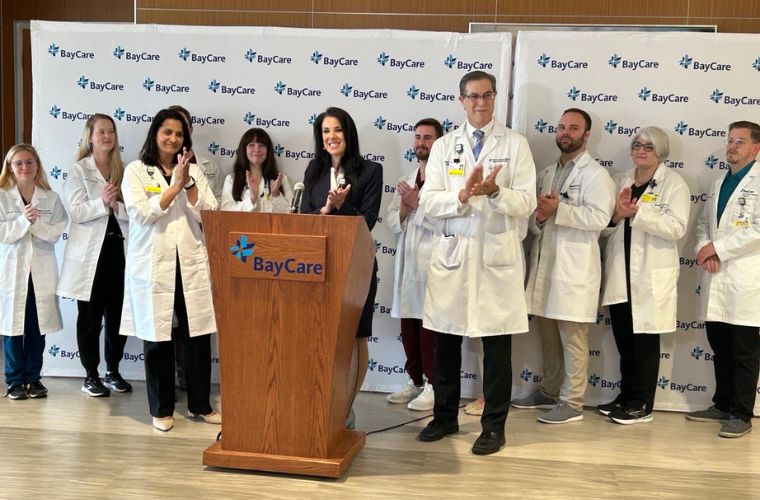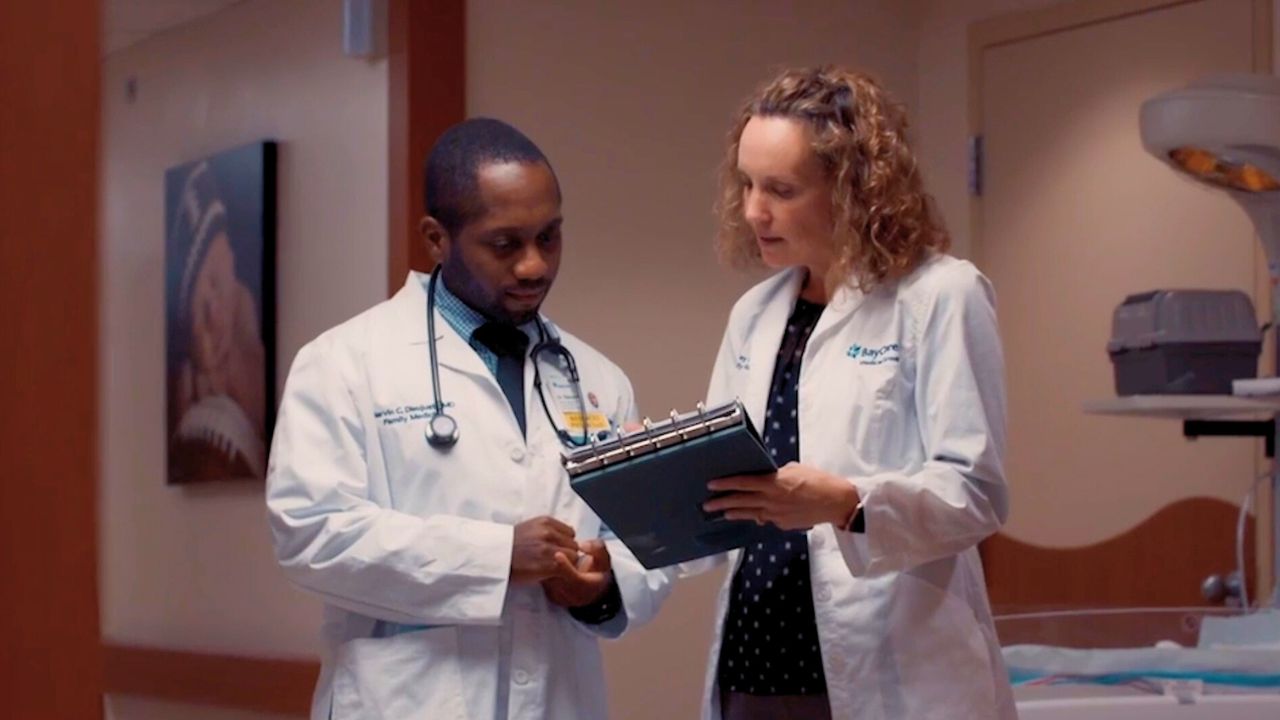BayCare Expanding Academic Programs to Train West Central Florida's Physicians and Clinicians
West Central Florida’s top health care system announced today a deeper commitment to training the region’s next generation of physicians and to leading medical research. The expansion of academic offerings will enhance medical and surgical specialties across the health care system, already the region’s provider of choice.
BayCare plans to increase its residency positions to more than 650 by 2029. BayCare’s plans include two new programs in internal medicine and family medicine approved last week by the Accreditation Council of Graduate Medical Education (ACGME) and proposed residency programs in surgery, child and adolescent psychiatry, addiction medicine, emergency medicine plus additional internal medicine programs.
The multi-year residency programs, once approved by the ACGME, will be based in seven of BayCare’s 16 hospitals in Hillsborough, Pinellas, Pasco and Polk counties and will join four existing programs in pediatrics, psychiatry, family medicine and sports medicine. BayCare also has other post-graduate programs supporting pharmacy residents and providing graduate school training for respiratory therapy.
“The practice of medicine is constantly evolving and BayCare is committed to being at the forefront. By investing in physician education and research, we will make sure that BayCare’s exceptional physicians and clinicians continue to innovate and grow as they deliver the most advanced care for our patients and the entire region,” said Stephanie Conners, president and CEO of BayCare.

BayCare announced its plans at a news conference at St. Joseph’s Hospital in Tampa, which will be the home, along with St. Joseph’s Hospital-North in Lutz, to the new 117-resident internal medicine program approved last week. The other program approved last week, a 48-resident program in family medicine, will be based at St. Joseph’s Hospital-South in Riverview in partnership with Tampa Family Health Center, a federally qualified health center.
Once fully implemented in 2029, BayCare’s plans, including current programs, would bring an influx of close to 200 new resident physicians and fellows to the region each year. The expansion also means BayCare’s robust research efforts will also grow beyond its current 450 projects, including participation in 250 sponsored clinical trials for patients.
“With BayCare, a resident physician not only learns how to deliver compassionate care, they also learn to continue to challenge themselves to deliver the best clinical care,” said Dr. Sowmya Viswanathan, BayCare’s chief physician executive. “At BayCare, residents will receive the best clinical training in an environment surrounded by state-of-the-art technology and dedicated faculty who are in the forefront of academic endeavors including nationally renowned research.”
Resident physicians, fresh from medical school, frequently bring the most up-to-date scientific innovations with them, having spent years in the classroom. They also are required, as part of their training, to engage in scholarly activity, which will naturally contribute to BayCare’s already robust research program.
In its research, BayCare investigates best medical processes and procedures to improve patient outcomes, and also collaborates with others. Some of the nation’s best-known hospital systems, academic institutions and manufacturers of medical devices and drugs seek out BayCare for participation in their own research projects, thereby giving BayCare patients access to potential cutting-edge treatments before they are available on the market.
BayCare’s investment in physician education comes amid continued concerns about physician shortages in the United States. By qualifying to expand its graduate medical education offerings, BayCare will attract many more young physicians to the region each year, many of whom will likely choose to stay to practice medicine in the area after finishing their formal “residency” training with BayCare. The expansion in residency training comes with the support of the state of Florida, whose Legislature has worked to grow the physician pipeline through current and new funding, including the pending Live Healthy Act currently under debate in Tallahassee.
“BayCare has amazing physician educators and staff, and it is a fantastic place for learning and continuing education for these resident physicians,” said Dr. Paul Lewis, BayCare’s designated institutional official for graduate medical education. “For physicians seeking to work in community-based care while continuing their academic pursuits, we offer a faculty of a caliber second to none.”
BayCare is West Central Florida’s largest health care provider, serving roughly one out of every three people in the region with 16 hospitals and extensive outpatient facilities and doctor’s offices in Hillsborough, Pinellas, Pasco and Polk counties. BayCare has announced plans to build a 17th hospital in Manatee County, where it already has doctor’s offices, and it delivers home care services across 13 counties. Its BayCare Medical Group is the largest multi-specialty practice in the region with 1,120 physicians and advanced practice providers.

